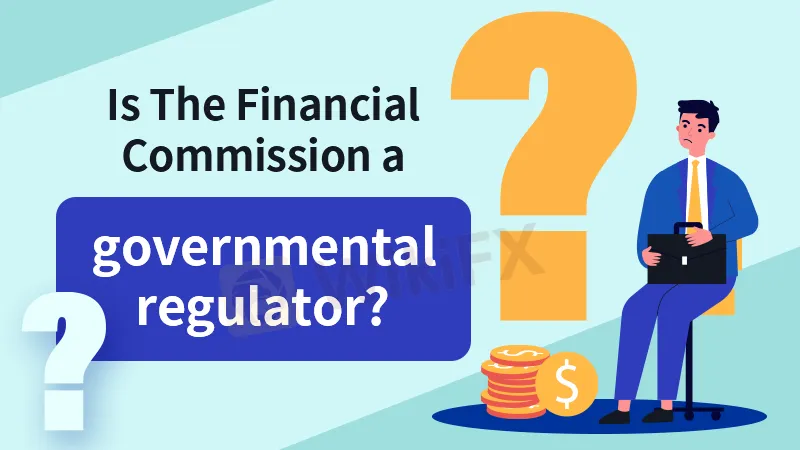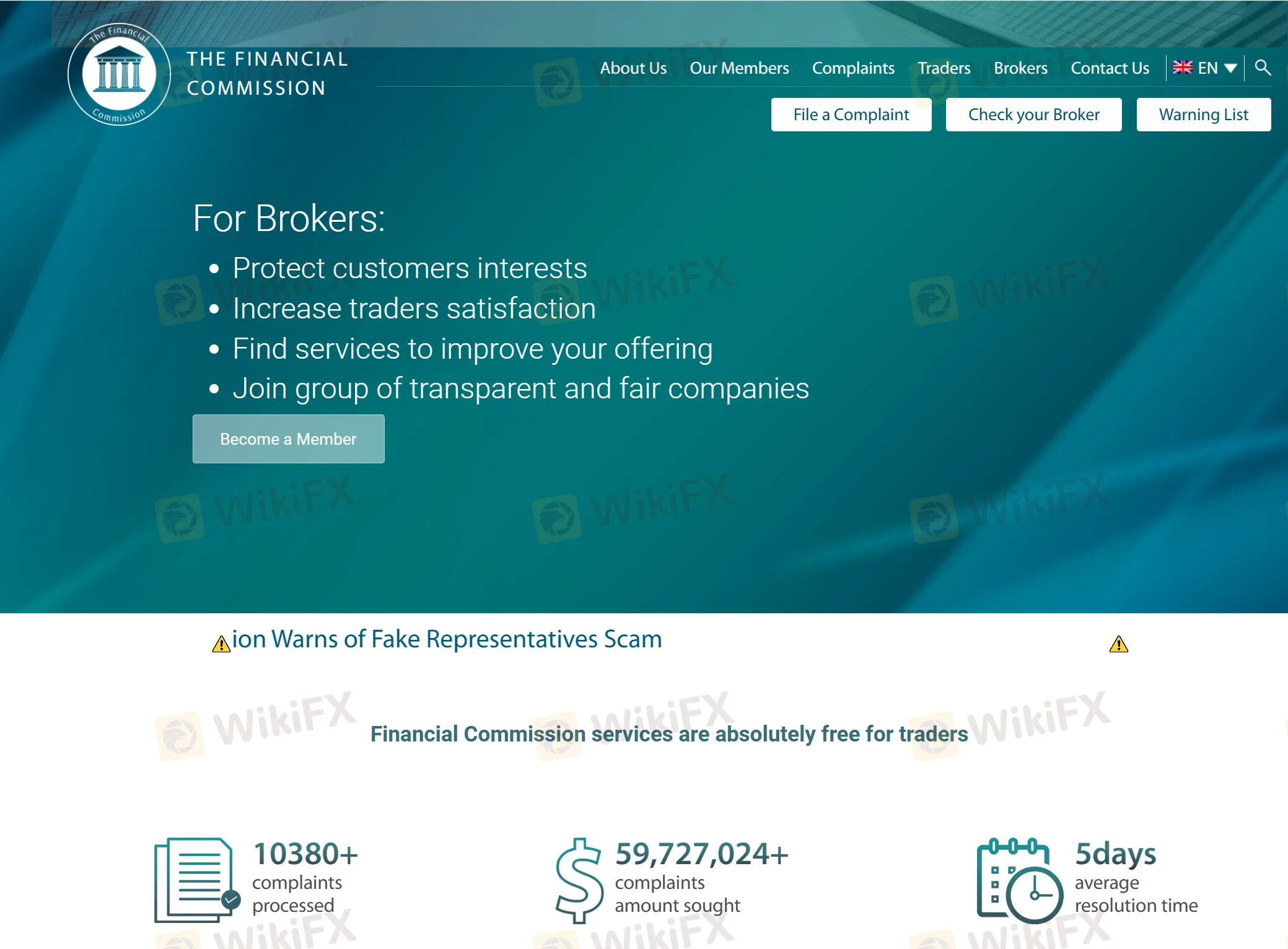简体中文
繁體中文
English
Pусский
日本語
ภาษาไทย
Tiếng Việt
Bahasa Indonesia
Español
हिन्दी
Filippiiniläinen
Français
Deutsch
Português
Türkçe
한국어
العربية
Is The Financial Commission a governmental regulator?
Abstract:With the rise of online trading platforms, the need for robust oversight has never been more critical. Enter "The Financial Commission," a company that has garnered attention for its mission to expose scam brokers. However, a closer examination reveals complexities and considerations that investors should be aware of before placing blind trust in its pronouncements.

With the rise of online trading platforms, the need for robust oversight has never been more critical. Enter “The Financial Commission,” a company that has garnered attention for its mission to expose scam brokers. However, a closer examination reveals complexities and considerations that investors should be aware of before placing blind trust in its pronouncements.
Founded with the goal of safeguarding investors from fraudulent practices, The Financial Commission operates independently of governmental regulatory bodies. While its intentions may be commendable, it's essential to recognize the limitations inherent in its role. Unlike official regulators empowered by legislation, The Financial Commission lacks the authority to enforce compliance or impose sanctions on errant brokers.


Central to understanding The Financial Commission's efficacy is its methodology for identifying and exposing scam brokers. The company employs its own set of criteria, which may not necessarily align with industry standards or represent a consensus within the market. Consequently, there is a degree of subjectivity involved in its assessments, raising questions about the objectivity and reliability of its revelations.
Moreover, it's crucial for investors to exercise discernment when interpreting the findings published by The Financial Commission. While the company endeavors to provide valuable insights, its determinations may not carry the same weight as those made by established regulatory bodies. Investors should view its revelations as one of many sources of information and not as a definitive verdict on a broker's legitimacy.
In navigating the complexities of the financial industry, regulatory exposure in the private sector can offer guidance but should not be solely relied upon. Investors must conduct thorough due diligence, drawing upon a variety of reputable sources, including governmental regulators, industry experts, and independent reviews.
Ultimately, while The Financial Commission plays a role in exposing scam brokers, it's essential for investors to maintain a critical perspective. While its efforts are commendable, they should be viewed as complementary rather than a substitute for official oversight. In the quest for a trustworthy trading experience, prudence and vigilance remain investors' most potent allies.

Disclaimer:
The views in this article only represent the author's personal views, and do not constitute investment advice on this platform. This platform does not guarantee the accuracy, completeness and timeliness of the information in the article, and will not be liable for any loss caused by the use of or reliance on the information in the article.
Read more

Think Before You Click: Malaysian Loses RM240,000 to Investment Scam
A manager from Sibu, Malaysia, lost RM240,000 to a fraudulent investment scheme.

How Big is the Impact of the USD-JPY Rate Gap on the Yen?
The U.S. Federal Reserve's repeated rate cuts and the narrowing of the U.S.-Japan interest rate differential are now in sight. So, why is the U.S.-Japan interest rate differential so important for the yen’s safe-haven appeal, especially when global economic uncertainty rises?

Share Industry Insights and Discuss Forex Market Trends-Philippines
This month, we are excited to announce the posting activity, Share Industry Insights and Discuss Forex Market Trends! Share your Forex insights and not only grow alongside thousands of traders, but also have the chance to win generous rewards! Make your trading journey truly exciting — come join us now!

Share Industry Insights and Discuss Forex Market Trends
Attention, both Forex novices and experts! The opportunity has arrived! Every week, we will select popular posts and outstanding comments. 10 winners of the posting activity will each receive 20 USDT, and 20 comment winners will each receive 15 USDT! Not only are there cash rewards, but your ideas will also inspire more partners to share their Forex insights!
WikiFX Broker
Latest News
Think Before You Click: Malaysian Loses RM240,000 to Investment Scam
What Are The Top 5 Cryptocurrency Predictions For 2025?
Lawsuit Filed Against PayPal Over Honey’s Affiliate Fraud
OPEC's Profound Influence on the Oil Market
Just2Trade: SAFE or SCAM?
The January Effect of 2025 in Forex Markets
New York becomes first US city with congestion charge
Currency Calculator






